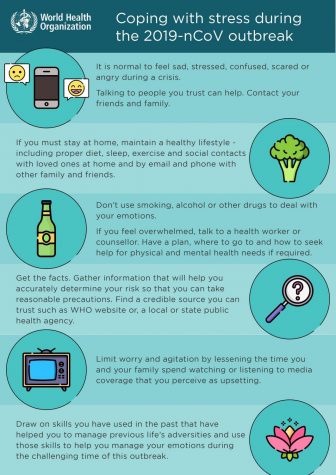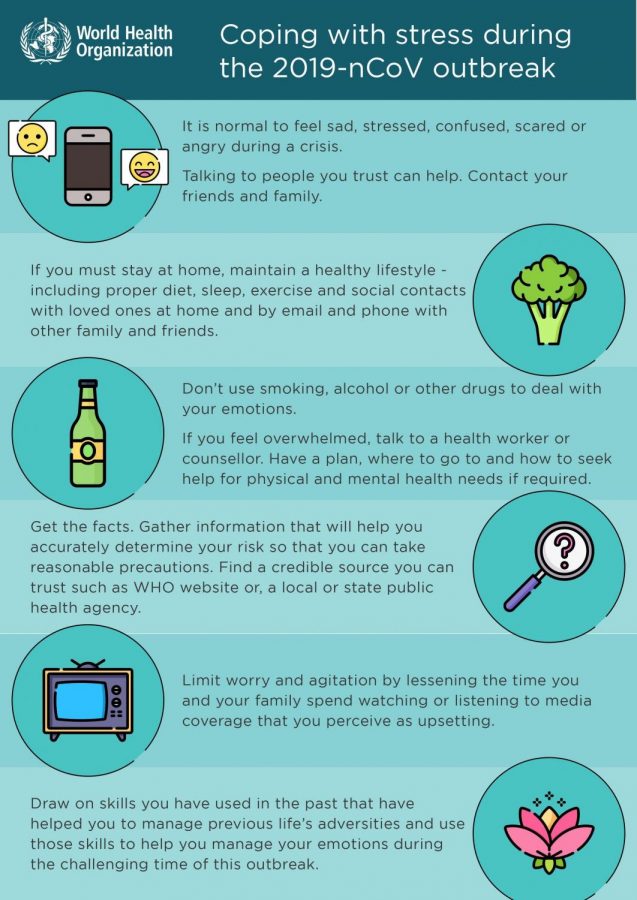It’s time to find your zen mode
Since the beginning of the coronavirus outbreak, fear and anxiety have seen a tremendous increase throughout the world of mental health.
September 19, 2020
COVID-19 virus has put a big halt to our lifestyle. If you need a daily reminder, here it is: don’t forget to take time for yourself and reflect.
One of the first steps to reduce your lingering stress, regardless of if you’re doing work/school online or in-person, is you should try to maintain a daily routine.
“As humans, we don’t like uncertainty and tend to thrive in routines,” says Mark Flanagan, a social worker at Cancer Wellness at Piedmont.
Keeping up with a routine will keep you in control and help focus your attention on the things in your life that matter. Sit back, grab a journal, and write down your new and improved routine.
This might sound cliche, but find someone to talk to that you trust. It can be grueling to rely on someone else since we are all experiencing generally the same thing. Sometimes people need more than just someone to talk to; as a last resort, don’t hesitate to download an app or go on a website that offers therapy. For example, “Talkspace” is an app available on apple and android devices. That is if you are willing to pay a little cash and work on changing yourself for the better.
Additionally, realizing you’re stressed and why, can help you manage and reduce it in the future. There is a difference between regular stress and chronic stress.
“While short-term pressures and stress are normal and can help us change in positive ways, chronic stress causes a huge deterioration in our quality of life on a physical level,” said Flanagan.
Once you can figure out the root cause of your stress, make sure you still continue to follow the community health guidelines. Including washing your hands frequently and maintaining social distancing. Importantly, check-in with your loved ones, whether it is over text or on a call.

Laying off the media is another big step that you can take to reduce stress levels.
“When we constantly check our newsfeeds and see bad news, it activates our sympathetic nervous system and can send us into fight-or-flight mode,” says Flanagan.
Instead of constantly checking your newsfeed throughout the day, substitute those hesitations with a good book or listen to a podcast. Though staying connected has long been a hallmark of mental health, distance from others can also be helpful.
Flanagan states, “It’s important to practice social distancing with social media too. We may not think we’re having any effect on our newsfeed, but we can take steps to reduce the ripple effect of panic on social media.” It is never a bad idea to encourage others and send a positive message their way as well.
Never lose hope that things will get better because they can improve down the road. The world has overcome so many other things; there is always light at the end of the tunnel.








![“She [Walker] was the biggest advocate for any student,” said Basile.](https://mundismillmedia.com/wp-content/uploads/2023/05/Colorful-Watercolor-Note-Paper-with-Brush-Stroke-A4-Document-336x475.png)
